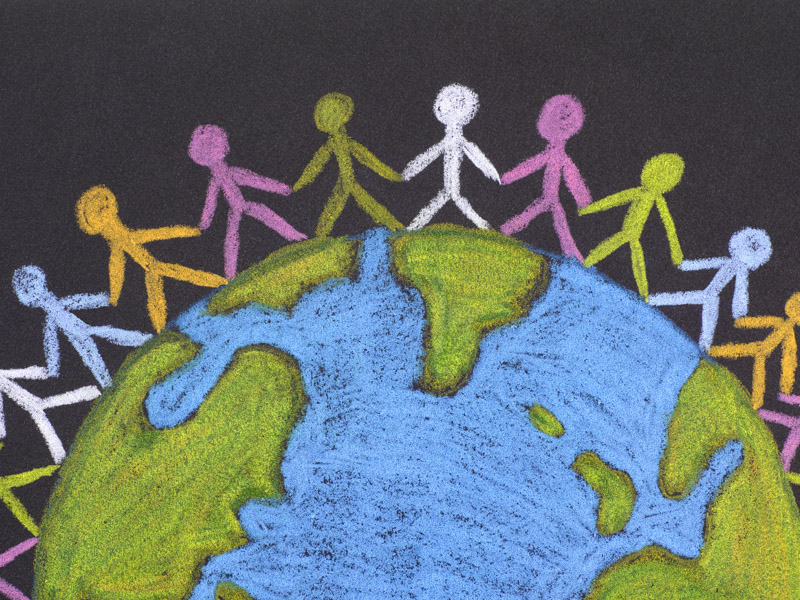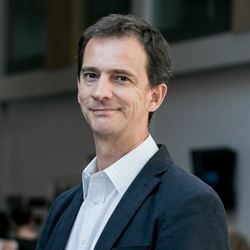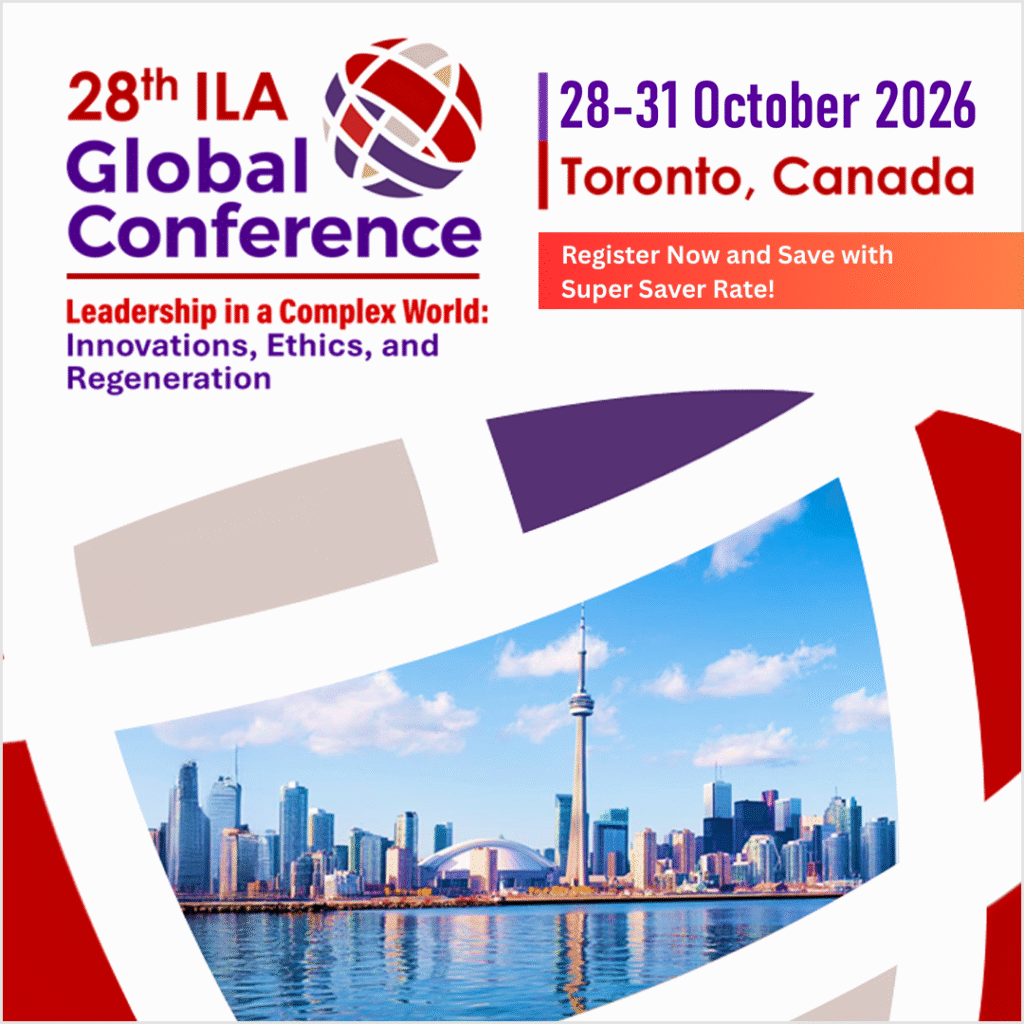
by Richard Bolden
- 23 March 2022
Share:
It is now over two years since the arrival of Covid-19, which plunged much of the world into lockdown and caused immense social and economic disruption and loss. On 11th March 2020, the World Health Organization (WHO) declared the outbreak a pandemic and as of 22nd March 2022, there have been over 470 million recorded cases and 6.1 million Covid-related deaths worldwide (World Health Organization, n.d.).
As governments in London, Washington D.C., and elsewhere call to “build back better,” and numerous organizations follow suit, it is easy to become so focussed on the future that we forget what we’ve been through. Without doubt, now is a time of both opportunity and need, but levels of physical and emotional exhaustion are at an all-time high. A report published in March 2022 notes a 25% increase in the prevalence of anxiety and depression worldwide since the outbreak of the pandemic (World Health Organization, 2022). The impacts of Covid, however, are not equally distributed. We are, of course, now painfully aware of the disproportionate impact of the virus on people of Black, Asian, Indigenous, and minority ethnic backgrounds, but the lasting effects on them and other populations are harder to discern (Tai et al., 2021). Research on staff who worked in intensive care units at the height of the Covid-19 pandemic, for example, shows a 40% likelihood of developing post-traumatic stress disorder (PTSD) — twice that of military veterans recently engaged in combat (Greenberg et al., 2021).
Over the past year, I have had the opportunity to work with professionals from a range of contexts and have been struck by the levels of exhaustion reported. This is particularly prominent amongst people working in health and care — many of whom had to keep working through the pandemic, often on the Covid “frontline” facing considerable personal risk and witnessing unimaginable trauma. In a series of reflective sensemaking discussions I had with staff from the National Health Service in England in Spring/Summer 2021, people compared their experiences to “clinging to a lifeboat” following a shipwreck or “being thrown out of a perfectly good airplane without a parachute.” A veteran from the UK armed forces, now working as an NHS Manager, described the height of the pandemic as worse than anything he had witnessed during the Helmand province campaign in Afghanistan. Another participant, a Black female NHS administrator, described her experiences of working through the pandemic whilst her brother and three other family members passed away, summing up with the observation that “This year has been about so much more than work!”
The emotional labour (Hochschild, 1983) of “putting on a brave face” and telling others “we can get through this” is an additional burden that has been carried. As one NHS leader said:
One day feels everything is doom and gloom and you know you’ve got a huge burden to try to deal with… and then you are trying to be optimistic as the leader… the rest of the staff look to you and how you’re coping, which often has been a huge influence on how the rest of the team are feeling… so you often have to wear a full smile and you know, the false positive to say “you know we can get through this.” You know try and support each other, But you’re carrying that burden yourself and it can be feeling very isolating.
Pulled quote.
More recent discussions with staff from higher education institutions around the world paint a similar picture, albeit usually without the same degree of personal risk (Parkin et al., 2021). Nonetheless, people describe the immense turbulence and uncertainty of the past two years and the repeated need to adapt to changing circumstances and demands. Whilst some might question the accuracy of such accounts, it is worth noting that the PwC Global Crisis Survey 2021 ranks the higher education sector as the second hardest hit by the pandemic (just behind hospitality and leisure), with 83% of organisations reporting a “negative” or “significant negative” impact (PwC, 2021).
In a TED talk titled The Human Skills We Need in an Unpredictable World, recorded just six months before the outbreak of the pandemic, Margaret Heffernan (2019) contrasts resilience with robustness. Her argument is that sectors such as healthcare, law and order, and the supply of essential services such as food, water, and energy, need to focus not just on the ability to get back up after a set-back but on the ability not to break under pressure in the first place. In order to do this, she suggests, we must abandon our obsession with efficiency and focus instead on “preparedness, coalition-building, imagination, experiments, bravery” that underpin our “capacity for adaptation, variation and invention.”
This is precisely what many organizations are now doing — including the healthcare and higher education institutions mentioned earlier — but in the wake of the pandemic there is a further “R” that requires attention. The physical and emotional exhaustion that now permeates many workplaces and communities also requires a significant investment in recovery. I’m not talking here of the economic recovery stressed by politicians and business leaders (although that is undoubtedly important) but of the slow and challenging process of human healing. In order to achieve this, we need to move beyond a rhetoric of “compassion” to a genuine “ethic of care” that “reconnects experiences across the so-called work-life boundary” (Tomkins & Simpson, 2017).
Recognition of the pain and suffering that accompanies change is not new. Indeed, Heifetz and colleagues (2009) made precisely this point when outlining their theory of adaptive leadership, arguing that “Honoring the reality that adaptive processes will be accompanied by distress means having compassion for the pain that comes with deep change” (p. 29). West and colleagues (2017), writing on compassionate leadership in healthcare, conclude that “In order to nurture a culture of compassion, organisations require their leaders — as the carriers of culture — to embody compassion in their leadership” (p. 4). Yet, as Maak and colleagues (2021), reflecting on insights from the pandemic, argue “It cannot be overstated, how demanding it is for a leader to make space for human moments, and to be present for and attentive to those who suffer in a situation in which pressure on the leader is relentless” (p. 74).
At a time when we are still figuring out how best to move forward from the pandemic it is worth remembering the saying, “In a world where you can be anything, be kind.” Kindness and compassion require a conscious choice — to look beyond our own preoccupations to consider the perspectives and experiences of others. The mobilization of groups and communities throughout the pandemic, as well as the near global solidarity and support shown for the Ukrainian population following the unprovoked attack by Russia, demonstrate our capacity for empathy and care. The question now remains how we can carry this forward. Then, and only then, will we have demonstrated our capacity to “build back better.”
Interested in learning more about this topic? On 12-13 July 2022, the Bristol Leadership and Change Centre will be hosting the 12th Developing Leadership Capacity Conference, with a theme of “Leading to Care – Foregrounding Health and Well-being in Leadership Development and Education.” Confirmed keynote speakers include Michael West and Leah Tomkins (mentioned above) as well as Tracie Jolliff. The event will be run online with no registration fee in order to enable wide attendance. The call for papers is now open. The deadline to submit is 1st April. Further details at https://lnkd.in/dJpE7Ekk.
References
Greenberg, N., Weston, D., Hall, C., Caulfield, T., Williamson, V., & Fong, K. (2021). Mental Health of Staff Working in Intensive Care During Covid-19. Occupational Medicine, 71(2), 62–67. https://doi.org/10.1093/occmed/kqaa220
Heffernan, M. (2019 July). The Human Skills We Need in an Unpredictable World [Video]. TEDSummit2019. https://www.ted.com/talks/margaret_heffernan_the_human_skills_we_need_in_an_unpredictable_world
Heifetz, R. A., Linsky, M., & Grashow, A. (2009). The Practice of Adaptive Leadership: Tools and Tactics for Changing Your Organization and the World. Harvard Business Press.
Hochschild, A. R. (1983). The Managed Heart: Commercialization of Human Feeling. University of California Press.
Maak, T., Pless, N. M., & Wohlgezogen, F. (2021). The Fault Lines of Leadership: Lessons From the Global Covid-19 Crisis. Journal of Change Management, 21(1), 66–86.
Parkin, D., Bolden, R., Watermeyer, R., & Outhart, K. (2021 December 16). Perspectives on Leadership in Global Higher Education – Reflections From the Roundtables. https://www.advance-he.ac.uk/news-and-views/perspectives-leadership-global-higher-education-reflections-roundtables
PwC. (2021 March). Global Crisis Survey 2021: Building Resilience for the Future. https://www.pwc.com/gx/en/crisis/pwc-global-crisis-survey-2021.pdf
Tai, D.B.G., Sia, I.G., Doubeni, C.A., & Wieland, M.L. (2021, October 13). Disproportionate Impact of COVID-19 on Racial and Ethnic Minority Groups in the United States: A 2021 Update. Journal of Racial and Ethnic Health Disparities. https://doi.org/10.1007/s40615-021-01170-w
Tomkins, L., & Simpson, P. (2017). An Ethic of Care: Reconnecting the Private and the Public. In D. Knights, & C. Mabey (Eds.), Leadership Matters: Finding Voice, Connection and Meaning in the 21st Century (pp. 89-101). Routledge.
West, M., Eckert, R., Collins, B., & Chowla, R. (2017). Caring to Change. The Kings Fund.
World Health Organization. (n.d.) WHO Coronavirus (COVID-19) Dashboard as of 5:27pm CET, 22 March 2022. https://covid19.who.int
World Health Organization. (2022, March 2). COVID-19 Pandemic Triggers 25% Increase in Prevalence of Anxiety and Depression Worldwide. https://www.who.int/news/item/02-03-2022-covid-19-pandemic-triggers-25-increase-in-prevalence-of-anxiety-and-depression-worldwide

Dr. Richard Bolden has been Professor of Leadership and Management and Director of Bristol Leadership and Change Centre at Bristol Business School, University of the West of England (UWE) since 2013. Prior to this he worked at the Centre for Leadership Studies at the University of Exeter Business School for over a decade and has also worked as an independent consultant, research psychologist and in software development in the UK and overseas.
His research explores the interface between individual and collective approaches to leadership and leadership development in a range of sectors, including higher education, healthcare and public services. He has published widely on topics including distributed, shared and systems leadership; leadership paradoxes and complexity; cross-cultural leadership; and leadership and change. He is Associate Editor of the journal Leadership.
Richard has secured funded research and evaluation projects for organisations including the NHS Leadership Academy, Public Health England, Leadership Foundation for Higher Education, Singapore Civil Service College and Bristol Golden Key and regularly engages with external organisations.

